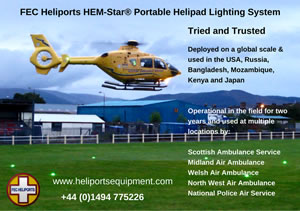Thales2016-04-29 07:22:26
Thales Alenia Space announced today the official kickoff of its Stratobus research & development project.
Stratobus is an autonomous stratospheric airship that was just approved by the French government's "investment in the future" program, with funding of 17 million euros.
The company CNIM (Construction Navale Industrielle de la Méditerranée) will build the structure and associated equipment, the ring and the nacelle, while Solutions F will provide the electric propulsion system, Airstar Aerospace the fully-dressed envelope, and Tronico-Alcen the energy conditioning system. In addition to these French partners, Cmr-Prototec of Norway will supply the energy storage system and MMIST of Canada the parachutes. Thales Alenia Space is the lead company, and also in charge of systems integration, avionics, solar arrays and certification.
Stratobus will be positioned at an altitude of about 20 kilometers (12 miles) over its theater of operations, in the lower layer of the stratosphere, which offers sufficient density to provide lift for the balloon. Winds at this altitude are moderate and stable throughout the entire zone between the tropics, at not more than 90 km/h (55 mph), allowing the airship to remain stationary by using its electric propulsion system. Stratobus will carry payloads to perform missions such as the surveillance of borders or high-value sites, on land or at sea (videosurveillance of offshore platforms, etc.), security (the fight against terrorism, drug trafficking, etc.), environmental monitoring (forest fires, soil erosion, pollution, etc.) and telecommunications (Internet, 5G).
"The new market for high-altitude pseudo satellites, or HAPS, is estimated at one billion dollars from now to 2020, but is awaiting a product. With Stratobus offering a field of view of 500 kilometers, we're convinced that it will win a large share of this market," said Jean-Loic Galle, President and Chief Executive Officer of Thales Alenia Space.
Thales Alenia Space project manager Jean-Philippe Chessel added: "Stratobus is midway between a drone and a satellite, making a low-cost product offering permanent regional coverage and ideally complementing satellite solutions. Using only solar energy and green technologies, Stratobus has a very small carbon footprint - much smaller than that of a small private plane."
Thales Alenia Space and partners plan to launch a demonstrator in 2018, followed by the first qualification and certification flights in 2020. A number of potential customers have already been identified. Market forecasts indicate a return on investment in less than three years following its commercialization.
Stratobus is an autonomous stratospheric airship that was just approved by the French government's "investment in the future" program, with funding of 17 million euros.
The company CNIM (Construction Navale Industrielle de la Méditerranée) will build the structure and associated equipment, the ring and the nacelle, while Solutions F will provide the electric propulsion system, Airstar Aerospace the fully-dressed envelope, and Tronico-Alcen the energy conditioning system. In addition to these French partners, Cmr-Prototec of Norway will supply the energy storage system and MMIST of Canada the parachutes. Thales Alenia Space is the lead company, and also in charge of systems integration, avionics, solar arrays and certification.
Stratobus will be positioned at an altitude of about 20 kilometers (12 miles) over its theater of operations, in the lower layer of the stratosphere, which offers sufficient density to provide lift for the balloon. Winds at this altitude are moderate and stable throughout the entire zone between the tropics, at not more than 90 km/h (55 mph), allowing the airship to remain stationary by using its electric propulsion system. Stratobus will carry payloads to perform missions such as the surveillance of borders or high-value sites, on land or at sea (videosurveillance of offshore platforms, etc.), security (the fight against terrorism, drug trafficking, etc.), environmental monitoring (forest fires, soil erosion, pollution, etc.) and telecommunications (Internet, 5G).
"The new market for high-altitude pseudo satellites, or HAPS, is estimated at one billion dollars from now to 2020, but is awaiting a product. With Stratobus offering a field of view of 500 kilometers, we're convinced that it will win a large share of this market," said Jean-Loic Galle, President and Chief Executive Officer of Thales Alenia Space.
Thales Alenia Space project manager Jean-Philippe Chessel added: "Stratobus is midway between a drone and a satellite, making a low-cost product offering permanent regional coverage and ideally complementing satellite solutions. Using only solar energy and green technologies, Stratobus has a very small carbon footprint - much smaller than that of a small private plane."
Thales Alenia Space and partners plan to launch a demonstrator in 2018, followed by the first qualification and certification flights in 2020. A number of potential customers have already been identified. Market forecasts indicate a return on investment in less than three years following its commercialization.
For more information contact:
45, rue de Villiers
92526 Neuilly-sur-Seine
France
Tel: +33(0)1 57 77 80 00
